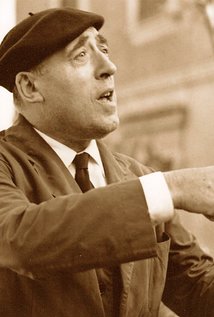
Cesare Zavattini
Birthday:
29 September 1902, Luzzara, Emilia-Romagna, Italy
Cesare Zavattini was born on September 29, 1902 in Luzzara, Emilia-Romagna, Italy. He was a writer and director, known for Ladri di biciclette (1948), Ieri oggi domani (1963) and Miracolo a Milano (1951). He died on October 13, 1989 in Rome, Lazio, Italy.
I am against 'exceptional' personages. The time has come to tell the audience that they are the true protagonists of life. The result will b...Show more »
I am against 'exceptional' personages. The time has come to tell the audience that they are the true protagonists of life. The result will be a constant appeal to the responsibility and dignity of every human being. Otherwise the frequent habit of identifying oneself with fictional characters will become very dangerous. We must identify ourselves with what we are. The world is composed of millions of people thinking of myths. Show less «
No doubt one's first and most superficial reaction to everyday reality is that it is tedious. Until we are able to overcome some moral and i...Show more »
No doubt one's first and most superficial reaction to everyday reality is that it is tedious. Until we are able to overcome some moral and intellectual laziness, in fact, this reality will continue to appear uninteresting. One shouldn't be astonished that the cinema has always felt the natural, unavoidable necessity to insert a 'story' in the reality to make it exciting and 'spectacular.' All the same, it is clear that such a method evades a direct approach to everyday reality, and suggests that it cannot be portrayed without the intervention of fantasy or artifice. The most important characteristic, and the most important innovation, of what is called neorealism, it seems to me, is to have realized that the necessity of the 'story' was only an unconscious way of disguising a human defeat, and that the kind of imagination it involved was simply a technique of superimposing dead formulas over living social facts. Now it has been perceived that reality is hugely rich, that to be able to look directly at it is enough; and that the artist's task is not to make people moved or indignant at metaphorical situations, but to make them reflect (and, if you like, to be moved and indignant too) on what they and others are doing, on the real things, exactly as they are. For me this has been a great victory. I would like to have achieved it many years earlier. But I made the discovery only at the end of the war. It was a moral discovery, an appeal to order. I saw at last what lay in front of me, and I understood that to have evaded reality had been to betray it. Show less «



